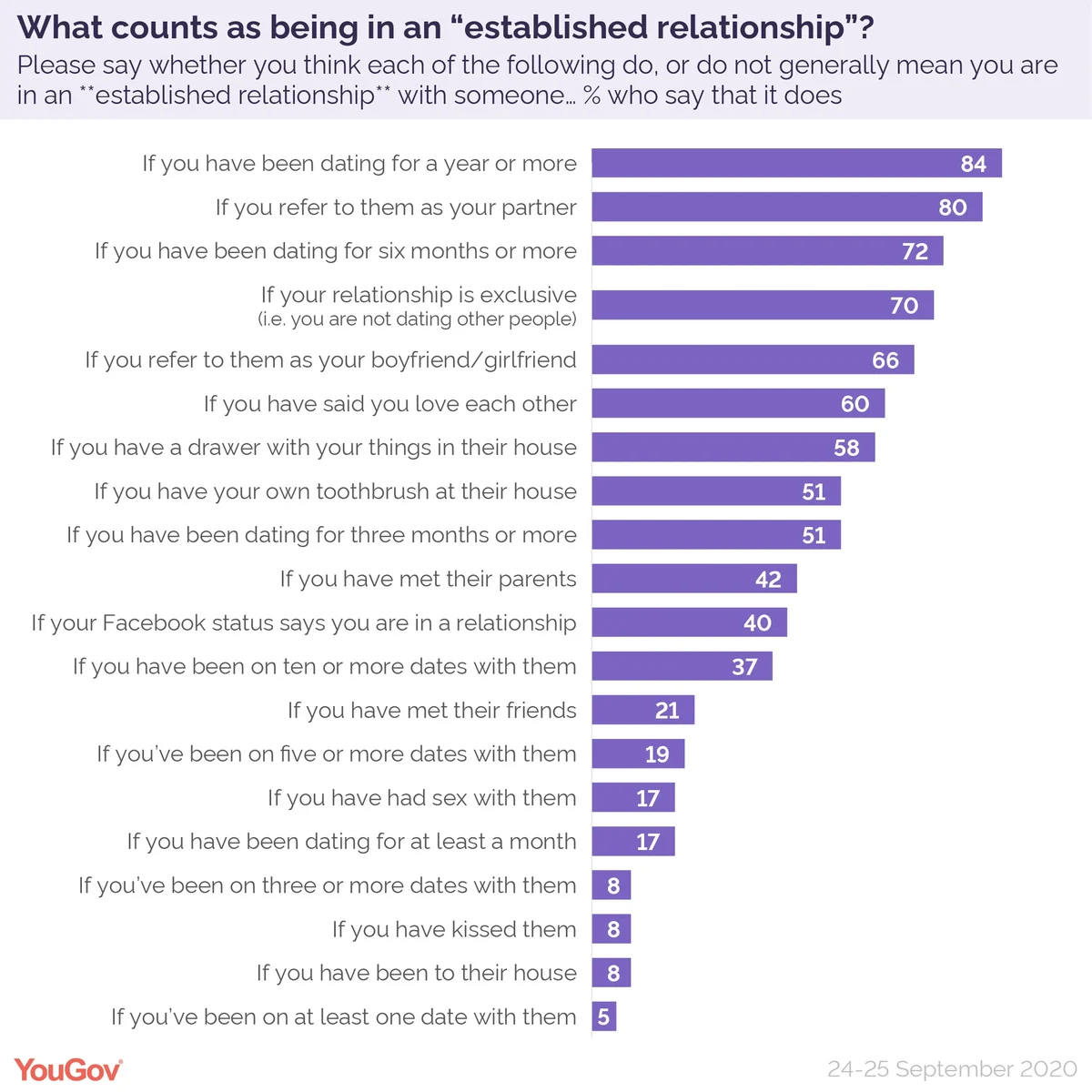Ministers won’t tell us, so we asked the public
With coronavirus cases rising across the country, health secretary Matt Hancock has said that those who are not in an “established relationship” should be maintaining socially distancing.
But what does an “established relationship” actually mean? With ministers unable to provide a clear definition, we have turned to the public to see if they can shed any light on the issue.
According to the majority of Brits, dating someone for three months or longer, being exclusive, or having your own toothbrush or your own things at the other person’s house all constitute an established relationship.
When it comes to titles, if you refer to the person as your partner or boyfriend/girlfriend that also counts, as does any relationship where people have declared their love for one another.

On the other hand, simply having been on lots of dates isn’t enough to convince most Brits that your bond is official: just 37% said that going on 10 or more dates not necessarily meaning you’re in an established relationship.
Similarly, meeting the the other person’s friends and family isn’t enough to put you in the established category. Having had sex with the person also doesn’t cut it in the eyes of the British public.
What it means to be 'established' differs depending on your age
The generations disagree on many of our relationship markers. The biggest difference comes with whether the relationship is “Facebook official”. Six in ten 18-24 year olds (61%) say if this is the case you are established as a couple, compared to just 24% of those over 65.
Younger people are also more likely to think meeting someone’s parents counts, as does saying you love each other or referring to them as your boyfriend/girlfriend.
By contrast, older people are more likely to think that if you have moved things into their house means your relationship is established. They are also more likely to think that “doing the business” means you’ve crossed the line into and established relationship. The views of men and women are less divided. The largest difference is over whether the act of simply not dating anyone else counts as being established (it does to more women than men, by 77% to 63%).










